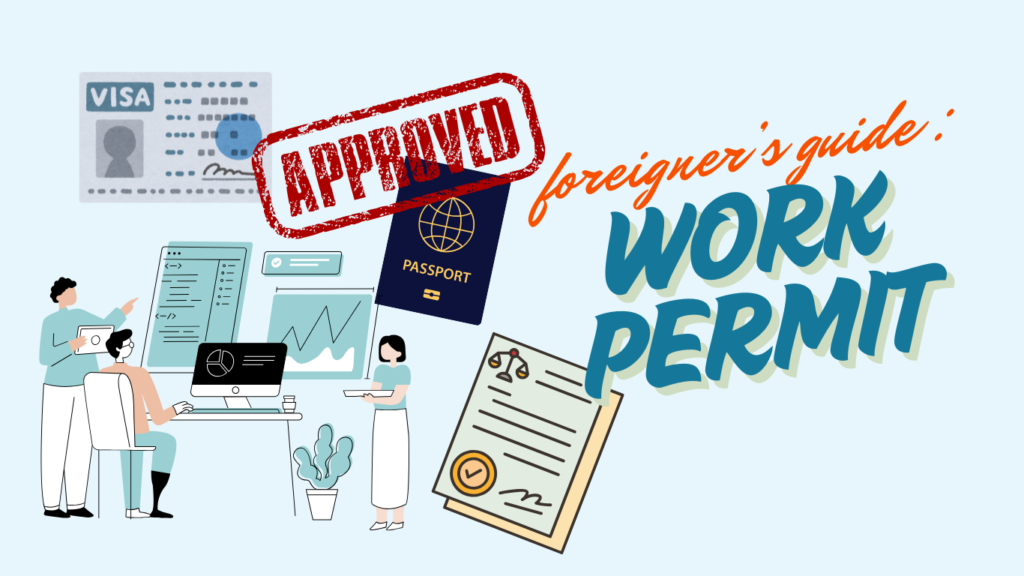
Hiring foreign workers in Indonesia provides businesses with a substantial advantage by introducing a variety of skill sets and global expertise. However, obtaining a permit to employ foreign nationals is complex and requires a thorough understanding of Indonesian regulations. The subsequent article outlines the fundamental procedures and critical factors that must be considered in order to manage permits effectively.
Comprehending the Legal Framework
The Indonesian government enforces strict laws governing the hiring of foreign workers to protect domestic labor markets. The following are the main rules that control this process:
1. Manpower Law No. 13 of 2003
2. Government Regulation No. 34 of 2021
3. Minister of Manpower Regulation No. 8 of 2021
4. Decree of Minister of Manpower No. 228 of 2019
Employers must adhere to these laws to prevent penalties, such as the revocation of employment permits or the imposition of fines. Additionally, these regulations are intended to ensure that foreign workers complement the domestic workforce rather than replace it.
Mandatory Permits
In order to employ foreign laborers in Indonesia, businesses must obtain the following permits:
Manpower Report/Wajib Lapor Ketenagakerjaan Perusahaan (WLKP)
Companies must report the employment data and information to relevant agencies, such as the local Manpower Supervisory Office. Related to the Regulation of the Minister of Manpower of the Republic of Indonesia Number 4 of 2019 concerning Procedures for Mandatory Electronic Reporting of Employment in Companies, it is expressly stipulated that this regulation changes the procedures for mandatory employment reporting, namely requiring companies to submit reports electronically through the employment information system. This aims to simplify the reporting process and increase the efficiency and accuracy of data reported by companies to the government.
Foreign Worker Utilization Plan/Rencana Penggunaan Tenaga Kerja Asing (RPTKA)
Before the foreign workers can be employed, it must be approved by the Ministry of Manpower. This document serves as a framework for the employment relationship and illustrates the employer’s dedication to its compliance to the Government. The permit validity will follow the period approved by the Ministry of Manpower, without this the employer cannot place the foreign worker to work legally in Indonesia.
Notification
The employer is required to submit an application for a Notification after the RPTKA has been approved. This notification authorizes the issuance of a Limited Stay Visa (VITAS) for the foreign laborer. This phase is essential because it will link all the information provided by the Ministry of Manpower to the Directorate General of Immigration system.
Temporary Stay Permit/Izin Tinggal Terbatas (ITAS)
Upon the worker’s arrival in Indonesia, the Immigration Office issues the ITAS, or Limited Stay Permit. It enables the individual to perform and reside in the country for a predetermined duration. The worker’s stay must be extended through the renewal of the ITAS.
Read also: A Comprehensive Guide to KITAS Indonesia: Everything You Need to Know
Procedures for Efficient Permit Management
Step 1: Define the Role and Support the Need
Provide evidence that no qualified local candidate is available and clearly identify the position the foreign worker will occupy. This phase is essential for the successful acquisition of RPTKA approval. Additionally, employers are required to specify how the foreign worker’s qualifications correspond with their organization’s objectives.
Step 2: Submit the RPTKA Application
Prepare the requisite documentation, which includes:
– Business licenses and company profile
– Employment agreement with the foreign worker – Proof of payment for the Skill Development Fund (Dana Pengembangan Keahlian dan Keterampilan or DPKK)
Preventing delays in the certification process can be achieved by guaranteeing the accuracy and comprehensiveness of these documents.
Step 3: Submit an application for notification
Submit the Notification application following the approval of the RPTKA. The mandatory foreign labor compensation fund (DKP-TKA) is paid as part of this process. The Notification functions as a conduit between the visa application process and the employment plan.
Step 4: Complete the Limited Stay Visa (VITAS) application
The foreign laborer may submit an application for a VITAS at the Indonesian embassy or consulate that is the closest to their location after the Notification has been approved. In order to prevent complications during their entry into Indonesia, it is imperative to provide the worker with guidance throughout this procedure.
Also read: 5 Types of Visas for a Foreign Company in Indonesia
Step 5: Acquire the ITAS
In order to complete their ITAS application, the foreign laborer must visit the Immigration Office upon their arrival in Indonesia. In order to prevent any interference with the worker’s activities, employers should guarantee that all supporting documents are submitted in a timely manner.
Monitoring and Compliance
Employers are required to maintain continuous compliance with all regulations, which includes the following:
– Reporting any modifications to employment terms or roles
– Renewing permits prior to their expiration
– Adhering to the maximum allowable stay period
In order to facilitate regulatory authority audits, employers should also maintain comprehensive records of all permit-related activities. Regular training on compliance requirements can assist HR teams in maintaining awareness of their obligations.

Issues and Resolutions
Common Obstacles
1. Complex Documentation Requirements: Employers frequently encounter delays as a result of incomplete or inaccurate submissions. Especially for first-time applicants, the exhaustive list of required documents can be overwhelming.
2. Regulatory Changes: Compliance can be complicated by the frequent updates to immigration and labor laws. Maintaining awareness necessitates substantial resources and effort.
3. Cultural and Language Barriers: Employers or HR teams that are not Indonesian-speaking may encounter difficulty in effectively navigating the permit process.
Solutions
– Engage Professional Services: The process can be streamlined by hiring a legal consultant or agency that specializes in foreign worker permits. These professionals can assist in guaranteeing that all applications are submitted on time and are accurate.
– Maintain Awareness: Review the Ministry of Manpower and Immigration Office’s updates on a regular basis. Timely information can be obtained by subscribing to newsletters or joining industry associations.
– Incorporate Technology: Digital tools and platforms that are specifically designed to manage HR and compliance tasks can assist in the tracking of deadlines, the storage of documents, and the automation of reminders.
Advantages of Employing Foreign Workers
Employing foreign laborers provides numerous benefits, despite the intricacies:
1. Access to Specialized Skills
Foreign workers frequently contribute their expertise in niche disciplines that may not be readily accessible in the local market. This can be of exceptional value to sectors including healthcare, engineering, and technology.
2. Increased Competitiveness
Businesses can remain competitive in an increasingly globalized market by leveraging the innovative solutions and fresh perspectives of global talent. In addition, foreign laborers can serve as intermediaries between domestic and international markets, thereby enabling expanded opportunities.
3. Transfer of Knowledge
The recruitment of foreign specialists can result in the development of skills among local employees. Foreign workers can contribute valuable knowledge to the local workforce by fostering mentorship and collaboration, thereby increasing overall productivity.
Key Strategies for Efficient Permit Management
1. Prepare in Advance: Begin the permit application process in advance to account for potential delays.
2. Ensure Open Communication: Consistently provide the foreign worker with information regarding the status of their application and any supplementary requirements.
3. Form Relationships with Authorities: By fostering a positive relationship with officials at the Ministry of Manpower and Immigration Office, it is possible to promptly resolve any issues that may arise.
In conclusion,
Managing permits for foreign workers in Indonesia requires meticulous planning and adherence to regulations. By understanding the legal framework, following the correct procedures, and staying proactive in compliance, businesses can effectively navigate this process and reap the benefits of a diverse and skilled workforce.
For expert assistance with managing permits, consult with a professional agency to ensure a smooth and efficient process. The investment in proper permit management is well worth the advantages that global talent can bring to your organization.
Thank you for reading this article. If you need more information on how and what tax regulations in Indonesia, WeSrve provides tax and accounting services that will help you to simplify your work tasks.
To learn more about our company and our services, visit our website or contact us through email: support@wesrve.co.id and WhatsApp.
We look forward to serving you and helping you achieve your goals.




